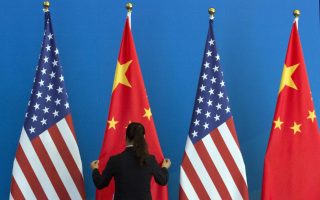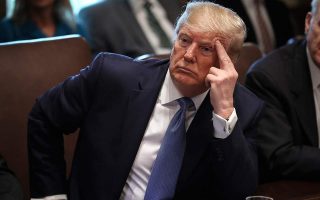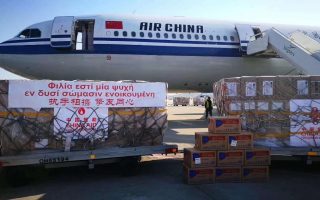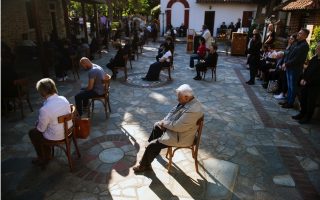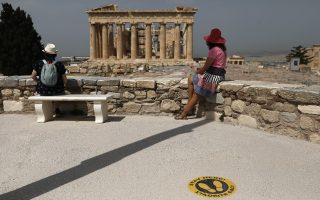Venezuela faces emergency situation
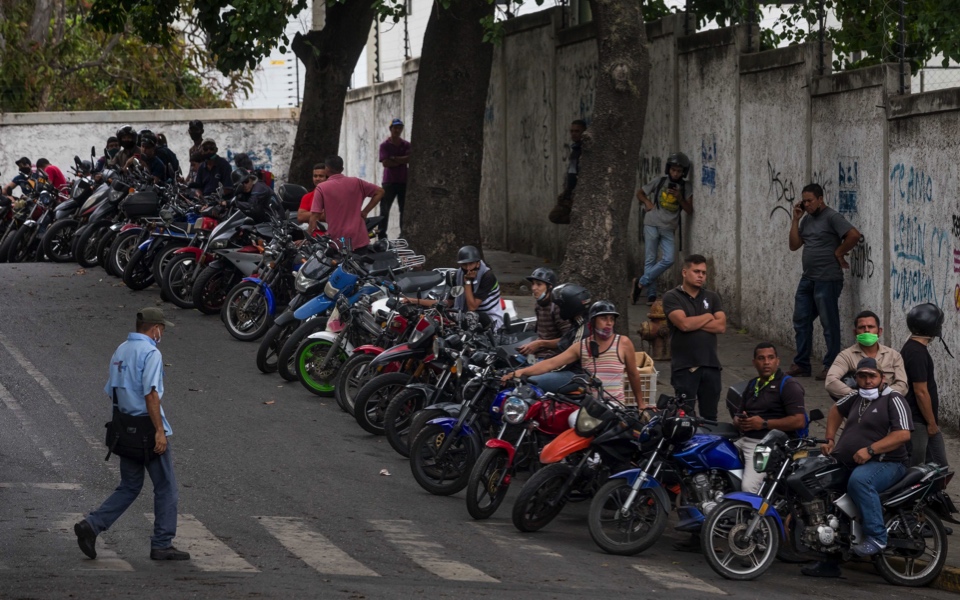
Four months ago I had the honor of meeting with Greek Prime Minister Kyriakos Mitsotakis to reaffirm the Venezuelan interim government’s steadfast support for a democratic resolution to our humanitarian emergency. The Venezuelan people will never forget the cradle of democracy and its citizens’ support during our hour of need, and we thank you for the leadership that Greece has shown, standing on the right side of history, as your people did on the morning of October 28, when it came to choosing between the overwhelming democratic forces or a privileged criminal regime.
Greece’s commitment has been extraordinary and your ability to manage the effects of the pandemic has not gone unnoticed. However, Covid-19 casts a shadow over our profoundly vulnerable population. On behalf of our people, the malnourished and those who have been forced to leave the country, I would like to thank Greece for participating in and contributing to the Donors Conference in Solidarity with Venezuelan Refugees and Migrants, but I must ask for more.
Our most urgent call to action is that we must stop Nicolás Maduro once and for all, and establish a unitarian emergency national government, a legal figure present in our constitution, before thousands more are displaced or die from his greed and malfeasance.
To date, more than 5 million Venezuelans have fled their homeland because the corrupt and criminal Maduro regime uses food and medicine as weapons of war and repression against innocent men, women and children. This has caused a humanitarian emergency that, in turn, has created a regional refugee crisis, potentially destabilizing our neighbors. It has been projected that in 2020, without additional assistance, Venezuela could pass Syria as the world’s greatest humanitarian crisis.
With the rise of the coronavirus, this dire prediction is certain to worsen. This new threat has the ability to devastate our population and the country’s already collapsing health system. Most hospitals have closed or are operating at a fraction of their capacity, many without regular access to electricity or water. The public health infrastructure is so weak that in 2019, Venezuela had the world’s steepest rise in malaria cases.
The interim government and our members of Parliament are working tirelessly to protect the vulnerable, especially the 9.3 million Venezuelans who are malnourished and the 2.3 million who are suffering severe malnourishment (the world’s fourth worst hunger crisis, according to the World Food Program), and coordinate donations of food and medicine from many countries around the world.
We must face reality with full responsibility to try to mitigate the pandemic’s impact. For that reason, we have proposed a national emergency government that would include all political factions and social sectors in the country. This emergency government, where I would step aside, would delegate to the State Council fundamental decisions regarding the state’s administration, emergency assistance, and the stability and reconciliation of the country.
We propose opening a humanitarian channel that would allow immediate international aid.
We propose a new safeguard law, democratic stabilization and national reconciliation, within the frame of universal human rights.
The only way to stop this emergency and alleviate the suffering for all Venezuelans is to hold free, fair and transparent presidential elections with a National Electoral Council appointed by the National Assembly, as stated in our constitution. To achieve free presidential elections, we must increase and coordinate the pressure from all international allies, such as the European Union and Greece.
The people of Venezuela implore change. Without it, Venezuela could lose current and future generations to starvation, malnutrition, infectious diseases, human rights violations, corruption and criminality.
There is hope for the freedom not only of my country, but of the entire Latin American region. The support of Greece is both very important and symbolic. When the cradle of democracy speaks, it sends a clear message to the world, and, unifying the EU position when it comes to Venezuela, it limits the Maduro military regime. I know that if we work together, in the barrios, villages and cities across Venezuela, and increase the efforts of our allies, we will rejoice next year, not only in celebration of the bicentennial of Greece’s independence, but a second Venezuelan independence of hope and opportunity.
Venezuelan MP Juan G. Guaidó is president of the National Assembly of Venezuela and recognized by more than 50 countries including Greece as the interim president of Venezuela.
